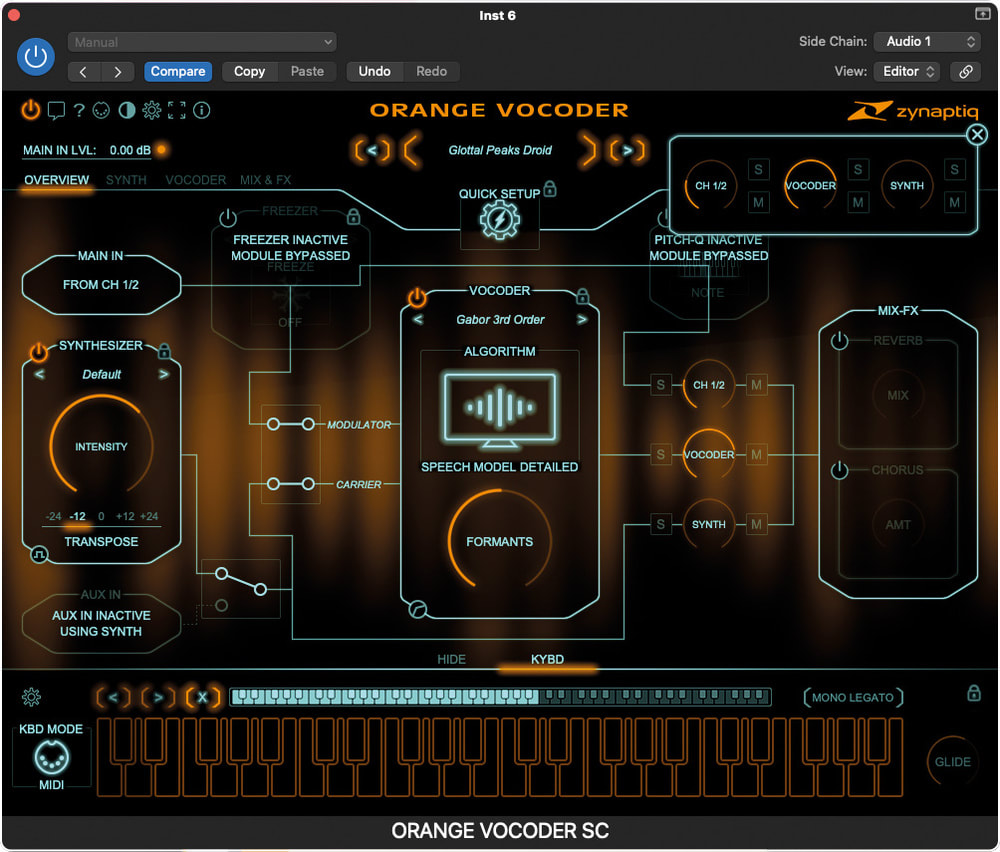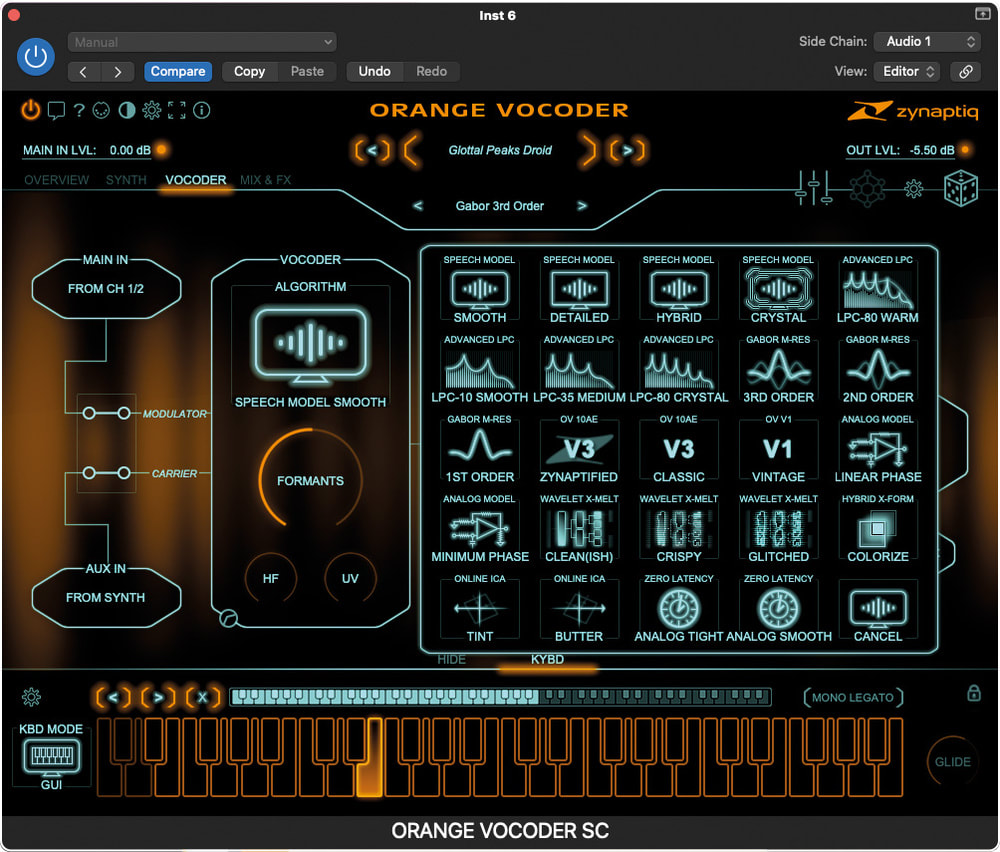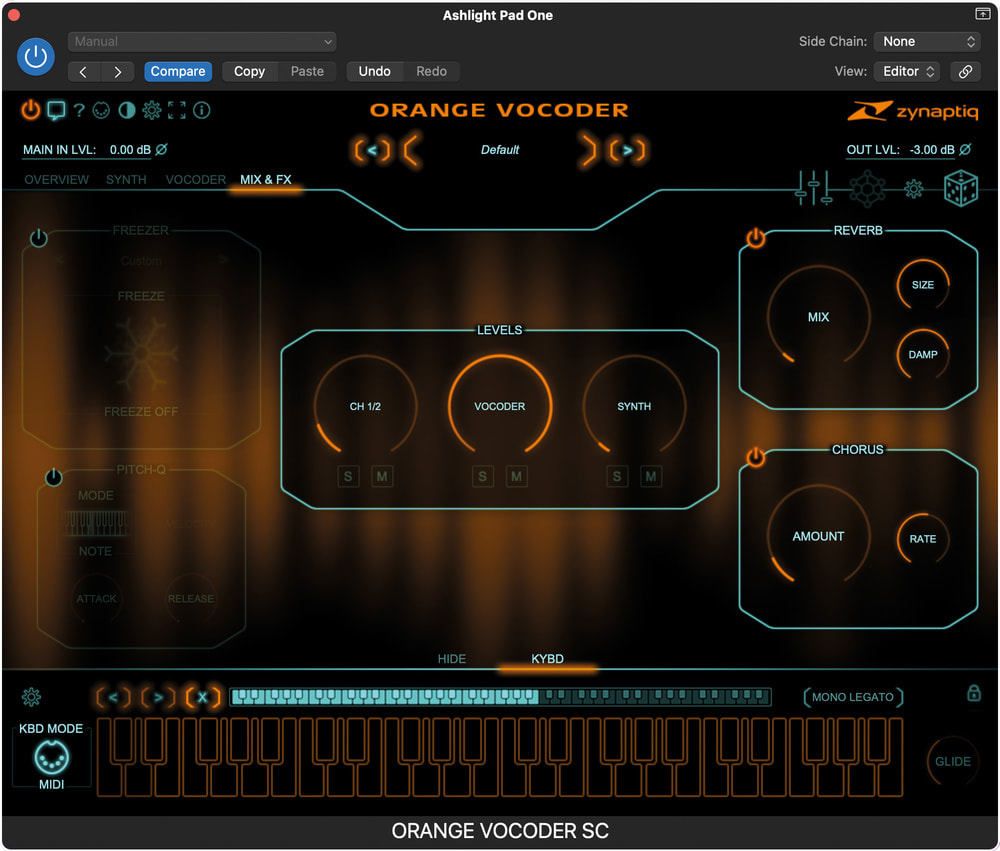|
Product Review
Zynaptiq ORANGE VOCODER IV – Vocoding & Effects Plug-in
This enduringly popular vocoding plug‑in has been treated to much more than a graphical refresh!
We reviewed the earliest incarnation of Orange Vocoder, then made by Prosoniq, way back in the year 2000 — so this has to be about as close to ‘classic gear’ as is possible for a plug‑in to be! It’s come a long way since then, though, and today, in the hands of developers Zynaptiq, it has been transformed into a seriously impressive sound creation tool. In fact, Orange Vocoder IV stretches way beyond the boundaries of conventional vocoding — it can be used to create sci‑fi voices, ethereal vocal washes, drones and much more besides. |
The price might look initially a bit steep for something with so few controls, but if you download the demo I don’t think it will take long for you to be convinced that Zynaptiq’s engineers have come up with something rather special. If your client has ever asked you for ‘more of everything’, then this is exactly the plug‑in to fire up. All the usual plug‑in formats (AAX Native, AU, RTAS, VST 2.4 and VST 3, on Mac and Windows) are supported at sample rates up to 192kHz, with authorisation using the iLok system.
As well as the vocoder section having been expanded considerably (there are now 24 different vocoding algorithms), there’s a host of other toys, including pitch correction (now included as a separate processing module), a new formant shifter, an audio freeze feature and a comprehensive synthesizer section, tailored to the needs of vocoding. There are vocoding algorithms based on analogue modelling, independent component analysis (ICA), LPC filtering and wavelet transforms, plus there’s the addition of unison and monophonic legato synth modes, numerous modulation options, and even an intelligent preset generator that uses ‘smart randomisation’. A new filter bank release/reverb parameter called Traces also adds to the creative side of the processing.
All of this advanced processing does come at the cost of relatively heavy CPU use. On a modern machine you should be fine, but if you’re in any doubt about the capability of your computer you can always try the free time‑limited demo to see how well it fares (and it’s worth remembering that increasing buffer size can reduce the strain at the expense of some additional latency). AU, AAX Native and VST 2.4 and 3 plug‑in formats are supported and authorisation can be to a physical iLok dongle or a specific computer. Mac support is for OS 10.15.x or newer running on an Apple Silicon or an Intel CPU (two cores or more, i7 or better recommended), and for Windows it’s version 10 or newer running on a CPU with at least two cores (again, Intel i7 or better recommended).
There are actually two versions of this plug‑in; both are included in the purchase price, but this isn’t the usual case of ‘full fat’ and a less feature‑rich ‘light’ version. One is called, simply, Orange Vocoder IV, while the other is Orange Vocoder IV SC, the last two letters being an abbreviation of ‘side‑chain’ and they cater both for the different MIDI and audio routing systems of various different host DAWs (for example, you need the SC version to route MIDI to the plug‑in in Logic Pro) and for when you wish to use an external stereo signal as carrier for the vocoder, in place of the in‑built synth. When you wish to use a mono signal as external carrier, the regular, non‑SC variant of the plug‑in can use its stereo input as a dual‑mono configuration, with the left and right channels carrying the modulator and carrier signal.
All of this advanced processing does come at the cost of relatively heavy CPU use. On a modern machine you should be fine, but if you’re in any doubt about the capability of your computer you can always try the free time‑limited demo to see how well it fares (and it’s worth remembering that increasing buffer size can reduce the strain at the expense of some additional latency). AU, AAX Native and VST 2.4 and 3 plug‑in formats are supported and authorisation can be to a physical iLok dongle or a specific computer. Mac support is for OS 10.15.x or newer running on an Apple Silicon or an Intel CPU (two cores or more, i7 or better recommended), and for Windows it’s version 10 or newer running on a CPU with at least two cores (again, Intel i7 or better recommended).
There are actually two versions of this plug‑in; both are included in the purchase price, but this isn’t the usual case of ‘full fat’ and a less feature‑rich ‘light’ version. One is called, simply, Orange Vocoder IV, while the other is Orange Vocoder IV SC, the last two letters being an abbreviation of ‘side‑chain’ and they cater both for the different MIDI and audio routing systems of various different host DAWs (for example, you need the SC version to route MIDI to the plug‑in in Logic Pro) and for when you wish to use an external stereo signal as carrier for the vocoder, in place of the in‑built synth. When you wish to use a mono signal as external carrier, the regular, non‑SC variant of the plug‑in can use its stereo input as a dual‑mono configuration, with the left and right channels carrying the modulator and carrier signal.





